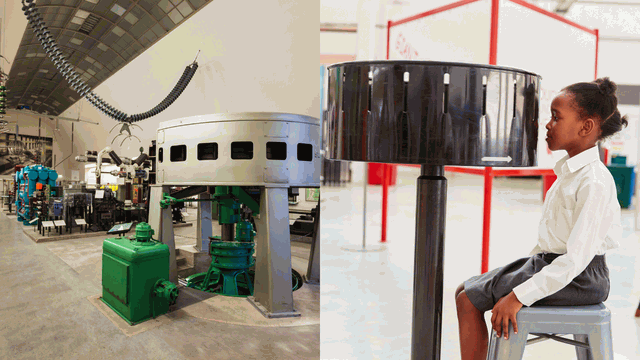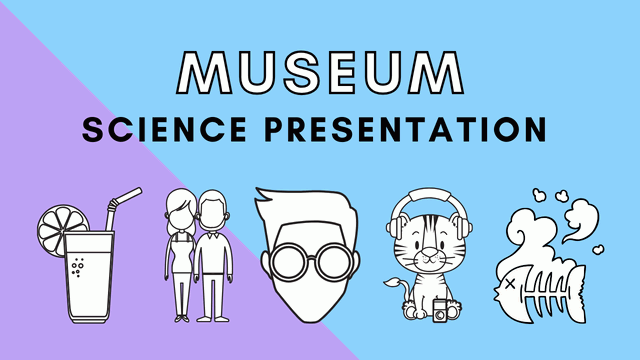Science Museum Boston: Discovering Wonders
Preface
Science museums are similar to doors leading to other worlds of knowledge, where the wonders of the cosmos, the complexity of our own planet, and the creative spirit of man come together.
These revered establishments, which can be found in many places throughout the world, act as links between society and science.
This essay will discuss the value of science museums and how they continue to enthrall and instruct tourists of all ages.

♦ World wild Information
Science museums are more than just places to find oddities and relics related to science. These are immersive experiences that let guests explore and understand the body of knowledge that spans numerous scientific fields.
Science museums are unique in that they are dedicated to ensuring that everyone can understand complicated subjects. Abstract concepts are brought to life through interactive displays, captivating performances, and practical exercises.
Science museums make science come to life, whether you’re astonished by the complexity of a DNA model.
♦ An Expedition across Time
The capacity of science museums to take visitors on a historical tour is one of their distinctive features. These organizations provide a window into the development of science and technology, letting us follow the trail of human creativity from prehistoric finds to contemporary innovations.
Visitors can revisit the crucial events that transformed our perception of flight and space by standing in front of these relics.
♦ Motivation and Instruction
Science museums serve as inspiration and educational venues in addition to being tourist destinations. They are essential in igniting children’s curiosity and fostering the interests of upcoming scientists, engineers, and inventors. Youngsters are exposed to a universe of possibilities when they visit science museums.
In addition to doing basic science experiments and interacting with knowledgeable scientists who are willing to share their knowledge, they can experiment with interactive displays.
These interactions can spark a passion for learning and research that lasts a lifetime.
Furthermore, educational workshops and programs aimed at capturing the interest and creativity of young learners are regularly held at scientific museums.
These educational establishments enable the upcoming generation to think critically and overcome challenging problems by offering a vibrant and engaging learning environment.
♦ Advancement of Scientific Literacy
During a time when scientific literacy is critical, science museums are lighthouses of knowledge. They are essential in encouraging a better comprehension of scientific ideas, dispelling myths, and developing an appreciation for evidence-based reasoning.
Global concerns, including public health, sustainability, and climate change, are frequently addressed by science museums.
They enable visitors to understand the importance of these issues and motivate them to participate in educated conversations and actions through exhibitions and educational programs.

♦ A Universe of Encounters
Science museums are portals to the world of discovery, not merely structures housing relics and exhibitions. These organizations give guests the chance to learn about a wide range of scientific fields, including zoology, astronomy, and all in between.
You can explore the mysteries of the cosmos, observe the development of technology, and comprehend the complexities of earthly existence at the Science Museum.
The capacity of science museum to make difficult concepts understandable to individuals of all ages and backgrounds is among their most impressive features.
Through engaging displays, interactive exhibits, and hands-on activities, visitors can understand scientific ideas that in other settings could have appeared insurmountable.
The commitment of scientists, educators, and curators who put out great effort to make science interesting and approachable is demonstrated by this accessibility.
♦ An Expedition through Time
Science museum serve as both historical portals and windows into the science of the present and future. They present the historical triumphs and turning points that have influenced how we perceive the world.
Marvel at antiquated scientific apparatuses, investigate Industrial Revolution innovations, and even witness relics from past space research expeditions.
Stephenson’s Rocket, a groundbreaking steam locomotive from the early 19th century, is housed at the Science Museums in London, one of the most famous examples of a historical treasure inside a science museum.
Seeing this locomotive up close will give tourists a profound appreciation for the inventiveness of the past and symbolize a significant turning point in the history of engineering and transportation.
♦ Motivating the Upcoming Generation
For the purpose of encouraging the future generation of scientists, engineers, and innovators, science museums are essential. These museums provide a world of possibilities for children.
They can interact with interactive displays, participate in practical experiments, and get to know actual scientists who are enthusiastic about what they do. Science and education can spark a passion for learning that lasts a lifetime.
Additionally, educational activities, workshops, and outreach projects aimed at fostering young minds’ creativity and curiosity are frequently held at science museums.
They give kids a secure and encouraging space to explore, ask questions, and hone their critical thinking abilities. These museums contribute to the development of tomorrow’s scientists and problem solvers by doing this.

♦ Importance of Science Museum
Science museums are important to society for a number of reasons. They are significant cultural and educational institutions that foster scientific literacy, pique interest, and progress science and technology as a whole.
The following are some salient features that emphasize the significance of science museums:
Science museum provide an interactive and stimulating learning environment for individuals of all ages. They offer a dynamic platform for teachers, students, and the public to engage with science topics, experiments, and exhibits, with the goal of making learning more engaging and memorable.
State-of-the-art displays, intriguing relics, and cutting-edge technology are frequently found in museums. These can encourage the next generation of scientists, engineers, and inventors by encouraging young minds to seek jobs in STEM (science, technology, engineering, and mathematics) disciplines.
Science museum serve as a conduit between the general public and the scientific community. They help demystify complex ideas and make scientific concepts understandable to a wider audience, encouraging public curiosity and enjoyment of science.
♦ Preservation of Scientific History
Priceless collections of historical papers, relics, and scientific instruments are kept in museums. They make the history of scientific discovery accessible to future generations by aiding in its preservation.
By presenting the most recent advancements in science and technology, several science museum act as innovation centers. They may encourage cooperation between scientists, businesspeople, and the general public, which may result in novel insights and innovations.
By giving people the chance to interact with science, art, and history in one location, science museums help to make a community more culturally diverse. Exhibitions that examine the nexus between science and culture are frequently held there.
A lot of science museum focus on urgent global issues like biodiversity loss and climate change. Through exhibitions and educational activities, they can encourage sustainable practices and increase public awareness of these issues.
Science museums frequently act as hubs for the local community, arranging activities, seminars, and initiatives that interest the people living there. They can create a forum for discussion and inquiry as well as a sense of community.
Science museums provide an exceptional kind of amusement that blends education and pleasure. These are fun family-friendly places where guests may have fun and learn new things.

A number of science museum work with academic institutions and universities on research projects. They might carry out studies, gather information, and support current scientific projects.
♦ Summary
In conclusion, science museums are vital organizations that support scientific and technological growth, inspiration, education, and cultural enrichment.
They are essential in creating a society that is scientifically educated and in raising the next wave of scientists and inventors.
Bottom Line
The Science Museum is a tribute to the natural curiosity and spirit of exploration in people. It’s a location where science and technology wonders are realized, where history and creativity collide, and where the next generation of scientists finds inspiration.
Science museums serve as a bridge between the general public and the scientific community, promoting scientific literacy, curiosity, and wonder.
So, the next time you have the opportunity, don’t miss the chance to visit a science museum. Come aboard and embark on an adventure via scientific marvels.
Whether you’re a visitor or a science enthusiast, you’ll undoubtedly find something to pique your interest and deepen your awareness of the fascinating world of science.
FAQs
A variety of exhibits, such as interactive displays, historical artifacts, scientific instruments, hands-on experiments, and educational demonstrations, are often found in science museums. They address a wide range of subjects, including physics, chemistry, biology, technology, and astronomy.
Experiential and dynamic learning environments are offered by science museums. They improve comprehension and memory by making difficult scientific ideas more approachable and interesting. They also foster a passion for study and inquisitiveness.
A lot of scientific museums promote interactive experiences with their displays. In order to enhance the immersive and pleasant nature of learning, they frequently feature interactive displays and experiments that let visitors touch, manipulate, and interact with the content.
No, scientific museums cover more ground than only the past. They do conserve scientific tools and relics, but they also emphasize modern science and technology, frequently presenting the most recent advancements and discoveries across a range of disciplines.
Yes, instructional programs, workshops, lectures, and demonstrations are regularly held at science museums. These initiatives aim to give participants a broader understanding of scientific subjects, and they could involve STEM-related activities for teachers and students.
Get access all prompts: https://bitly.com/xyz







